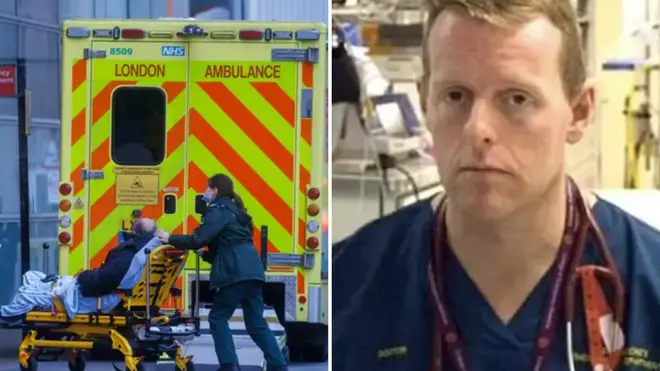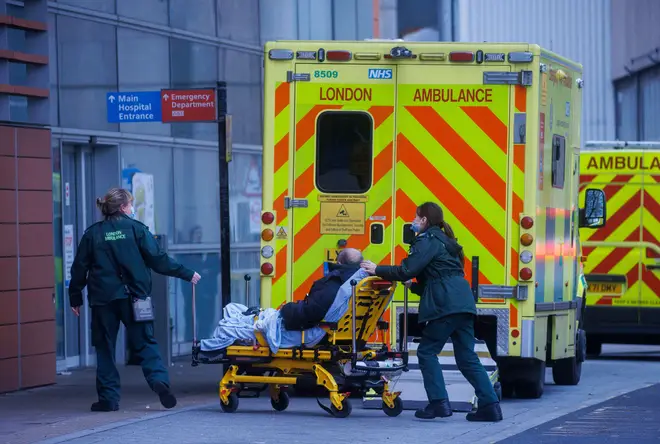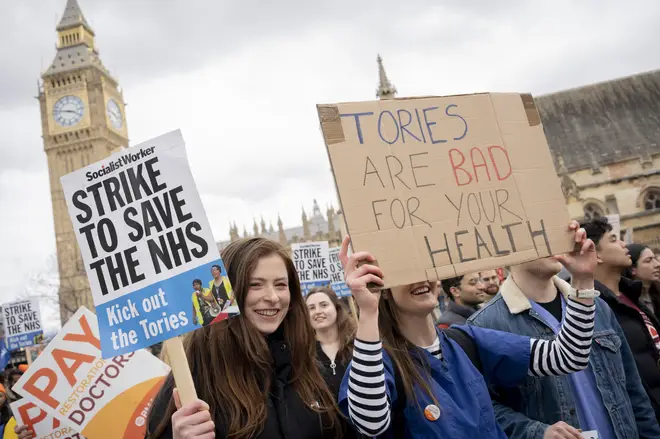
Shelagh Fogarty 1pm - 4pm
30 July 2023, 22:31 | Updated: 30 July 2023, 22:57

Thousands of 'needless deaths' could be seen in NHS hospitals this winter under Government plans for the health service, Britain's leading emergency doctor has warned.
The President of the Royal College of Emergency Medicine (RCEM) Dr Adrian Boyle has warned that the Government's NHS winter plan only provides half of the necessary staffed beds that the health service will need this winter.
Dr Boyle said that the Department of Health and Social Care should provide at least 11,000 more beds across the country to help the NHS deal with added pressures this winter.
Read More: Junior doctors urged to strike nine days after starting work in the NHS
He also sounded the alarm about the proposed system of financial rewards for hitting waiting time targets will leave seriously-ill patients to suffer as hospitals game the system.

The RCEN president told the Independent: "If you just look at the figures, all the indicators of our target performance, 12-hour waits in hospital, are all going the wrong way.
"If we compare them to what was going on at the same time a year ago, it makes me anxious that we are heading towards a worse winter than we just had."
He said the Government was "blithely sailing towards an iceberg", and that if it allows this winter to be as bad as the last, "it will break the very people who keep this broken system creaking along".
When asked whether the country was at risk of seeing even higher excess deaths during the coming winter, Dr Boyle said: "Yes, actually, I think we are."
Dr Boyle added that he had "little confidence" that the winter plans will "prevent queues of ambulances outside of hospitals, or the shameful sight of patients waiting for hours on trolleys in the corridors in A&Es (that are) full to bursting".
On why NHS trusts may game the system to get cash, Dr Boyle told The Independent: "People will start trying to look after and prioritise people who they think they can send home (within four hours) over patients who need admitting.
"They'll just accept the patients who need admitting are going to spend longer than four hours ... It distorts clinical priorities away from those who aren't the sickest.
Read More: Concern about NHS is rising, survey suggests
Read More: Soaring numbers of patients pay for vital operations as record NHS waiting lists keep rising
"This would leave the most vulnerable, typically the elderly and those in a poor mental state, waiting for hours potentially on trolleys in corridors."
An NHS spokesman said: "We have already seen significant improvements in ambulance and A&E services over recent months through initiatives in our urgent and emergency care recovery plan, which includes measures to increase bed capacity.

"The NHS will continue to build on this with our winter plan which, after clinical engagement, was published on Thursday.
"With more than 12,000 patients every day in hospital despite being medically fit for discharge, a nationwide rollout of care transfer hubs will provide one stop for staff to locate and co-ordinate the best and quickest discharge options for patients - either at home or into social or community care - which helps free up beds for other patients who need them, including those coming into emergency departments.
"Alongside other initiatives like same-day, emergency care units, acute respiratory hubs, and virtual wards, patients will be able to get the most appropriate care for their needs, and often avoid an unnecessary trip to A&E.
"This is better for patients, and means hardworking NHS staff can continue to prioritise those with the most urgent clinical need in A&E."